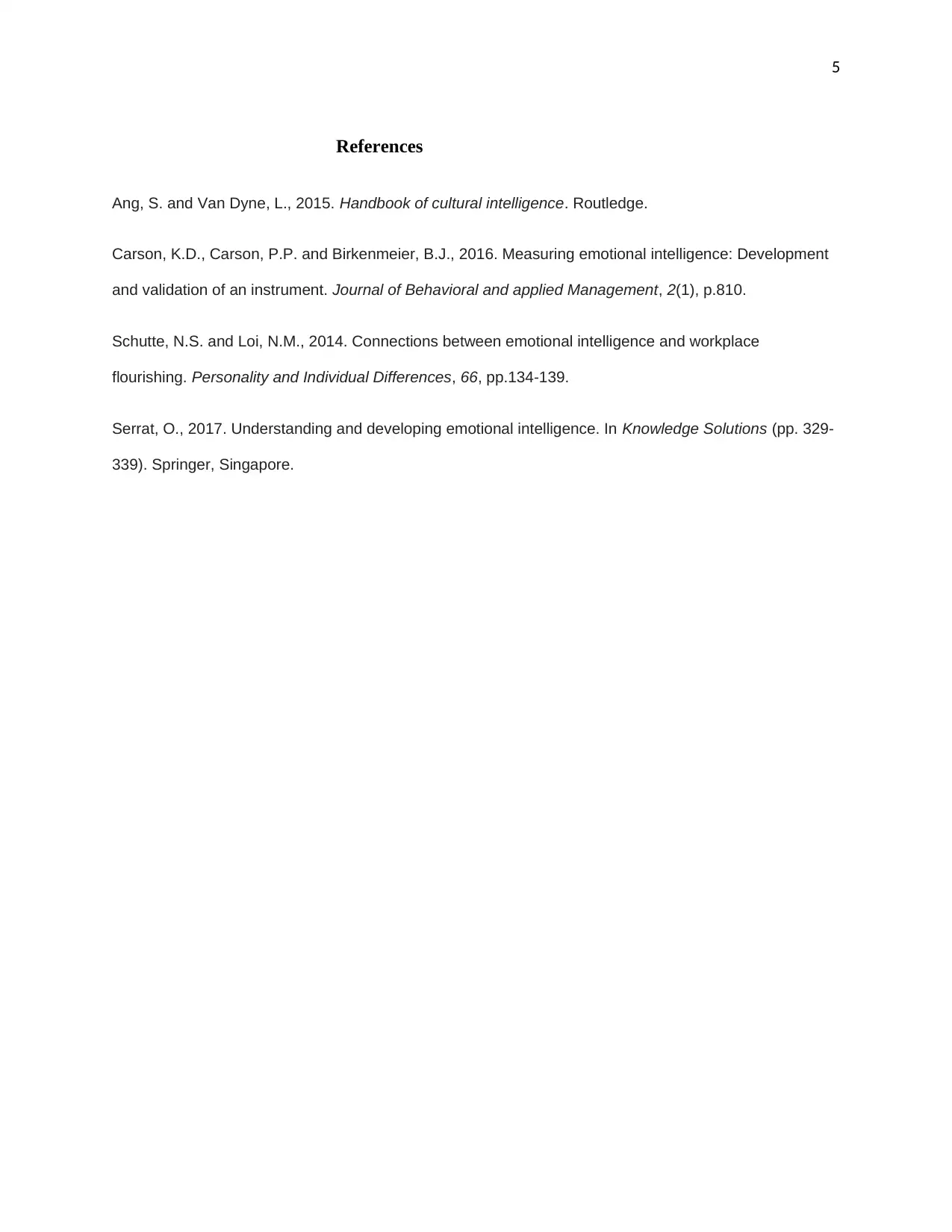Diploma in Management, Semester 1: EQ Test Analysis Report
VerifiedAdded on 2023/06/01
|5
|711
|209
Report
AI Summary
This report analyzes the results of an emotional intelligence (EQ) test conducted by a student pursuing a Diploma in Management. The introduction defines EQ as the ability to understand and manage emotions, highlighting its impact on decision-making and interpersonal relationships. The analysis section details the student's EQ scores, with a focus on self-awareness, flexibility, empathy, and interpersonal skills, interpreting their significance. The report then explores emotional triggers in the workplace, emphasizing the importance of controlling emotions to maintain a healthy work environment. It also discusses cultural EQ and its influence in diverse workplace settings. The conclusion reinforces the accuracy and usefulness of EQ tests for understanding and improving emotional control within teams, referencing relevant literature and research.
1 out of 5











![[object Object]](/_next/static/media/star-bottom.7253800d.svg)